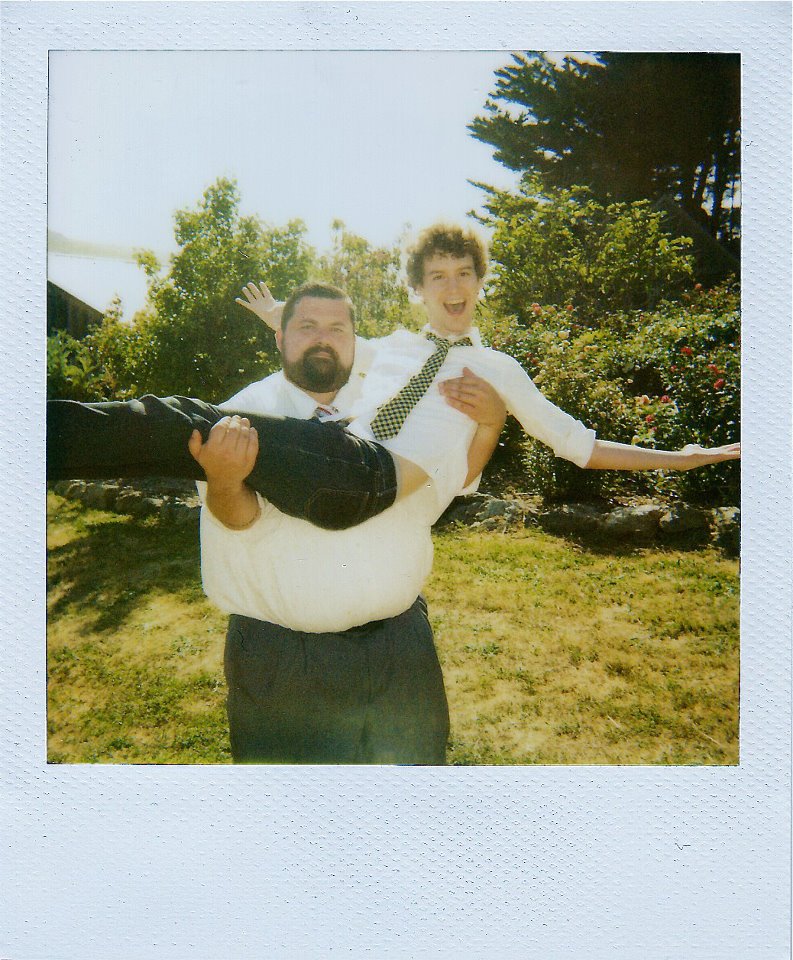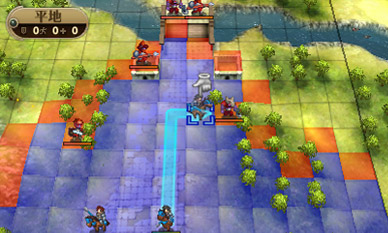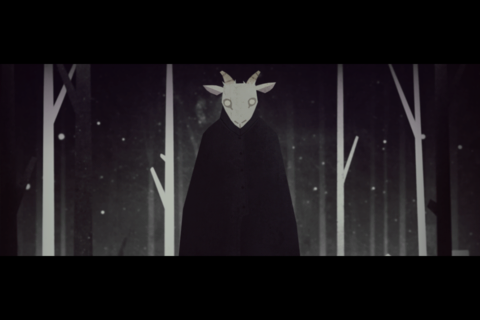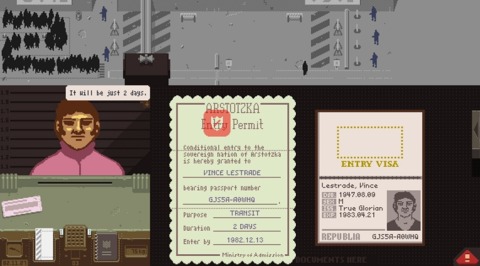
2012 was a trying year, and so was 2013. They were both years filled with loss, and it's not a surprise that I looked for comfort in my medium of choice, video games. Not long ago, I would have simply been looking for an escape valve, a chance to run around in worlds that were unlike my own, far away from my thoughts and problems. But these days, games have diversified in some truly incredible ways, and games now allow me to face and deal with the trying parts of real-life, too. 2013 was a truly weird year for games, but for me, it was a wonderful one.
10. Rayman Legends
I'm still fuming over Brad's comparison of Rayman Origins to Bubsy from a few years ago, but one criticism from that conversation still rings true: the controls were too loose. Controls are everything to a platformer, and while Origins played well, there was room for improvement in Ubisoft Montpellier's first foray into 2D jumping. Rayman Legends tightens things up perfectly, resulting in a much better playing platformer that's, somehow, even crazier, funnier, and surprising than Origins. The music-themed stages are reason enough to play Legends, in which playing to the beat becomes more important than taking in the gorgeous artwork. While Rayman Origins was a bit too hard, Rayman Legends might be a bit too easy. But in a genre that's seen so many terrific entries over the years, it's legitimately amazing when another one can come along and surprise you again. At this point, it's clear Michel Ancel is capable of being assigned any project and he'll find a way to thrive. So what's next, Michel?
9. The Swapper
Puzzle games are so personal. If a puzzle doesn't click, if the answer never comes, who is to blame? Are you too stupid to figure it out? Did the designer simply craft a crappy puzzle? It's hard to know, but it helps when puzzle games have other motivating factors to keep digging. The Swapper's hand-crafted aesthetic manages to create a more oppressive and isolationist sci-fi atmosphere than games wielding a budget a million times larger. A weird world of clones and psychic rocks makes a compelling setting, one that contextualizes the player's reasons for pushing forward, even when a solution seems so, so far away. Even the puzzle solutions feel personalized. So many times, I'd finish a puzzle and glance around. "Did anyone see that?" The way you can futz around the edges of the game rules convinces you that you're pulling off things that shouldn't be possible, and it's sickeningly satisfying. At the end, as the game presents one final, wild choice, you can't help but laugh at the darkness.

Trying new things is hard. It's so much easier to stick with the familiar because it makes sense. But XCOM: Enemy Unknown opened my eyes to the strategy genre, even if I'm a long ways away from spending an afternoon with Total War. Fire Emblem: Awakening is a perfect entry into the franchise. It still surprises me Nintendo is producing a long-running strategy series, but this all feels so very Nintendo, too. Learning how to play Fire Emblem isn't the hard part, it's learning how to play it well. More to the point, keeping units alive. Unlike XCOM, Fire Emblem makes you care about units as characters, not stacks of earned stats. I didn't let a single character die in Fire Emblem, but unlike XCOM, it didn't come through abuse of save states. No, when a character went down, I'd start the whole mission over. And over. And over. And over. Ridiculous? Totally. Worth it? Yeah. But when I've spent hours building ol' farm boy Donnel into a war machine with his children also in my ranks, it's no unit left behind.
Most video games are not very funny, and there are even fewer games with a biting sense of humor about the very medium it's based in. Though it's probably possible to enjoy The Stanley Parable without having a deep and lengthy relationship with games, it's all the more enjoyable with one. The Stanley Parable is both a celebration and scathing indictment of video games in 2013, playfully dancing around the inherent weirdness of them. It's a game that embraces the tense relationship between designer and player, asking the player to subvert and betray expectations, while quickly doing the same back to you. It's a game that dares to ask why games are the way they are. And doing so with comedy, it allows us to feel comfortable asking some very uncomfortable questions out loud: is all of this just a giant waste of time?
6. Brothers: A Tale of Two Sons
In a year with inexplicable loss, a year that followed another year of personal tragedy, Brothers: A Tale of Two Sons was a story that rang all too true. Starbreeze dared to make a game about the lengths we go to for loved ones, and the deep, unspoken bonds we create with family and friends over a lifetime. More than that, Brothers audaciously chose to integrate its themes into the controls scheme. No, the controls in Brothers weren't perfect. Yeah, I mixed up which brother I was controlling all the time. But the sense of connection it created with each of them was worth the emotional payoff that sprung from it. When the final story beats play out, as it becomes clear that everything was leading up to this moment, an otherwise fairly traditional story became elevated by gaming's defining trait: interactivity.
5. Year Walk

There are some games that feel destined for certain platforms, and Year Walk is one of those games. Even though Year Walk is coming to PC in 2014, those players are going to miss out with a mouse. Touch is part of the Year Walk experience, especially when the game asks you to rethink what you've been trained to do when interacting with these touch screen devices. Having the iPhone or iPad so close to your face, especially when the game dishes out a jump scare, is an intimate element that helps make Year Walk so deeply effective. It's a horror game, but one that transcends the genre, and becomes a good story that just so happen to be scary as hell, too. And, man, that's forgetting Year Walk Companion, a secondary app that masquerades as a source of mythology...right before it's found to be much more. Along with Device 6, Simogo is doing nothing less than performing magic on iOS right now.
4. Gone Home
Even until the final moments of Gone Home, I was expecting a serial killer to show up. Gone Home is not a horror game, but it has all the trappings of one, and it uses that to mess with your head. I mean, you're exploring an empty house in the middle of the night during a thunderstorm--what could go wrong? Nothing, as it turns out, but that doesn't mean everything is right in this house. Gone Home has an awfully unique story to tell, and by the end, it's not a spoiler to say the world hasn't been saved. The characters in Gone Home go through truly incredible twists and turns, but compared to your average video game, it's just a blip. And that's exactly what makes Gone Home special. By not betraying expectations, it betrays our expectations of how video games are supposed to act, especially when it comes to storytelling. The stacks of X-Files VHS tapes on the shelves certainly helped, too.
There aren't supposed to be any more good zombie games, yet game developers keep finding ways to make the well-worn dopes useful. Like The Walking Dead before it, The Last of Us takes familiar narrative ground for games and mines emotional depth from the human drama. Joel is not a good guy, but he's one hell of a survivor. The Last of Us makes this clear in its combat, and is probably the first game to earn the descriptor "visceral" in a long time. The violence is justified because Joel is a violent person, and we can't help but cheer for him a bit, especially if means Ellie's able to survive longer. I've become increasingly disenchanted with games clinging to realism as a way to make games "better," but The Last of Us leverages technology in a way to help you buy into a world that's uncomfortably like ours. It's a dark place, and it's not hard to see some of ourselves in Joel.
Cat cat cat. Cat cat cat. Cat cat cat cat cat cat. Look, I'm not joking! The cat suit in Super Mario 3D World is actually revelatory, and makes you think about the levels in a completely new way. It's also really cute, and I couldn't help but listen for the occasional "meow" from the characters when a level would end. But seriously, the Mario series continues to reinvent itself in ways that shouldn't be possible for a franchise that's been trotted out this many times. Yet EAD Tokyo has proven it's not afraid to use nostalgia as a tool, not a crutch. Super Mario 3D World is a finely tuned take on the hybrid 2D/3D formula explored in Super Mario 3D Land, and it continues to put most of Nintendo's attempts to remix its other franchises to shame.

There was a long time where Super Mario 3D World was in this spot, as it's the game I had the most fun with in 2013. But it's not the game I found myself thinking about the most, and it's not the game that made me feel the most distressed about my choices. Papers, Please takes the bureaucracy we bitch about daily and turns it into a game, forcing you to face the multi-headed rule monster head-on. Bureaucracy is given a face, reason. Set in the fictional country of Arstotzka, the game has you deciding the fate of those hoping to enter the country. You have good reason to let them in: it means you get paid. But if you break the rules, if they aren't supposed to be let in, your bosses will dock your pay. Get paid less, have less for your family. Have less for your family, maybe you son gets sick and dies. Maybe you're letting a bad person who's going to exploit people into the country? You're just doing your job, no reason to feel bad. What if this mother hasn't seen her son in years? She doesn't have the right paperwork. Come back tomorrow, lady. It's easy to rationalize these choices in the moment, knowing it's part of a game that you're trying to "win," but there is no real winning in Papers, Please. And when the game is over, you're left with your choices. Not all of them are easy to stomach, and not all of them are easy to explain away as just part of the game.